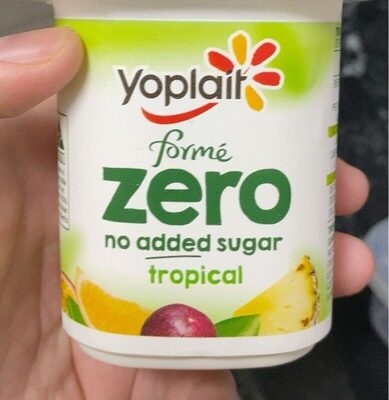
Barcode: 9300658409165
Yoplait yoghurt
HALAL
📝 Reason: Based on the listed ingredients of Yoplait yoghurt, most components are Halal. However, gelatine and natural flavors could be of animal origin and are not specified nor is there a Halal logo or certification. As per Islamic dietary laws (Quran 5:3) and global Halal bodies like IFANCA and HMC, doubt about the source marks these items as Doubtful and therefore the product is considered Doubtful (2).
🏷️ Category: N, /, A
📄 Certificates: Health Star Rating, Health Star Rating 5, No Added Sugar
Ingredients:
Details
Understanding the Halal Status of Yoplait Yoghurt
As a popular choice among yogurt lovers, Yoplait Yoghurt has caught the attention of many seeking halal dietary options. In this post, we aim to clarify the Halal status of Yoplait Yoghurt based on its ingredients and certification. The product is marked as HALAL; however, certain ingredients raise doubts regarding their origins, leading to a classification of ‘Doubtful’ for specific components.
Analyzing Ingredients and E-Numbers
To determine the Halal status of Yoplait Yoghurt comprehensively, let’s break down its ingredients one by one:
- Skim Milk: This is Halal as it is milk from cows, assuming no non-Halal additives are present. Cow milk is universally acknowledged as Halal according to various organizations.
- Milk Solids: Similar to skim milk, milk solids also maintain a Halal status unless they become contaminated.
- Water: Naturally Halal in all food manufacturing processes, water does not raise any concerns.
- Fruits (Pineapple, Passionfruit, Orange): All fruits are classified as Halal.
- Polydextrose: Usually derived from corn or wheat starch, this ingredient is Halal unless treated with non-Halal substances, which is rare in yogurt.
- Modified Starch (E1442): This starch is primarily plant-based and remains Halal unless directly sourced from non-Halal animal sources, which is also uncommon in mainstream yogurt.
- Locust Bean Gum (E410): Made from carob seeds, this ingredient is Halal.
- Pectin (E440): A plant-derived gelling agent, pectin is Halal as well.
- Gelatine: Often a concern due to the potential animal source, gelatine can come from pork, beef, or fish and is not specified in Yoplait’s formulation. Without clear certification, its source is deemed ‘Doubtful.’
- Natural Flavours: These can originate from either animal or plant sources, but since the source is unspecified, it creates another ‘Doubtful’ category.
- Sodium Citrate: This is a halal salt derived from citric acid.
- Citric Acid: Usually extracted from corn fermentation, citric acid is Halal.
- Acesulfame Potassium: A synthetic artificial sweetener that is Halal.
- Sucralose: This is another synthetic sweetener that is Halal.
- Calcium Chloride: Being a mineral salt, this ingredient is also Halal.
- Live Yoghurt Cultures (S. thermophilus & L. bulgaricus): These bacterial cultures are not animal-derived and are therefore Halal.
Conclusion
Although most of the ingredients in Yoplait Yoghurt are Halal, the presence of gelatine and natural flavours without clear source specification raises concerns. Thus, these components are marked as ‘Doubtful,’ especially when referenced against Islamic dietary laws from the Quran and various Halal certification bodies like IFANCA and HMC. For consumers who strictly adhere to Halal consumption, it would be prudent to avoid the product unless additional clarification regarding these ingredients is provided.
Additional Context
Yoplait Yoghurt not only carries a popular reputation in the dairy aisle but also claims a Health Star Rating of 5 and no added sugar, making it appealing for health-conscious consumers. However, it’s essential to balance health choices with dietary restrictions as highlighted in this review.
